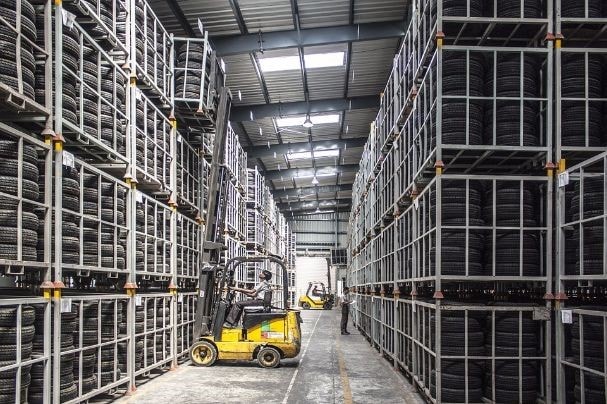In the UKCES Employer Skills Survey 2015, it was found that there were 209,500 vacancies in the UK that were the result of a nationwide skills shortage. The survey also found that of the 91,000 employers interviewed, 8% of them said that they had vacancies that were ‘hard-to-fill’. 6% of them said that they had vacancies that were subject to a skills shortage. These jobs are being left unfulfilled because employers simply cannot find the people with the right qualifications to hire.
When it comes to pinning down just where these skills-shortage vacancies are occurring, it becomes apparent that there are several sectors that are suffering more than others. For example, the same survey found that only one in three jobs in construction were being filled due to a lack of qualified candidates. For such an essential industry, this statistic is alarming. However it also represents an opportunity for anyone about to make a decision about their future education.
When there is a skills shortage, those who have the required skillset have a lot more choice where they work. They can often command a higher salary, which is usually offered in an effort to plug an important gap. We’re going to take a look at four industries with skills shortages and explore how you can have a successful career in each.
Engineering

The skills shortage in the engineering sector is one of the most publicised, and for good reason. The Royal Academy of Engineers estimates that they need to train 75,000 professional engineers every year until 2020 to meet industry requirements. Only 22,000 are graduating each year currently! This shortage has meant that graduates are much sought after. Graduates also have many vacancies to choose from when it comes to progressing their career.
The two main paths into the industry are through a degree or a higher apprenticeship, and each offers different benefits. Choosing to take a degree means that you can decide to specialise in a particular field or choose to take a general engineering degree and keep your options open. From there, you can join a graduate scheme or progress to a post-graduate qualification.
With a higher apprenticeship, you will be able to join a scheme with an employer straight after college or sixth form. This means training with the company while gaining hands-on experience. The main benefits of an apprenticeship are that you will earn while you learn. You’re often guaranteed a role with the company at the end of your training too.
Tomorrow’s Engineers have a comprehensive guide to routes into engineering, which is worth a visit if an engineering career sounds appealing.
Accountancy

The Association of Professional Staffing Companies reported a 10.2% rise in vacancies listed in the accountancy and finance field year-on-year between March and June 2016. This rise in jobs is indicative of a skills shortage. Not enough qualified accountants are being trained to meet demand.
Accountancy is quite a solid career choice, with excellent long-term career prospects and healthy wages for fully-qualified accountants. The average basic salary is between £48,000 and £53,000 for people under 30, according to the Institute of Chartered Accountants (ICAEW)’s 2015 Salary Survey. To pursue a career in this field, you can opt to do a degree in a related subject and go on to complete the final levels of a qualification with a recognised accounting body, or you can begin to study with a recognised body once you leave college or sixth form.
The National Careers Service has detailed career path information about becoming a private practice accountant and also a management accountant which are definitely worth a read if you’re interested.
Construction

Construction is crucial in keeping new building projects up and running, creating new public buildings, and building new homes for the UK’s growing population. As we’ve already mentioned, there is a huge shortage of candidates with the desired skillset in the construction industry. This means that those that are fully-trained can command higher salaries than similar positions in other sectors. The recent economic downturn has been much to blame for this. Many people left the industry, and not as many returned after the country recovered.
There are a great many roles within this sector, as well as numerous career paths into it. Many firms offer apprenticeships that provide on-the-job training, as well as a wage which is paid as you learn. If you want to go for a job role like an architect or a chartered surveyor, you most likely have to study for a degree or complete a professional qualification before you can begin looking for a job.
As such a varied industry with so many career possibilities, it can be difficult to give specific advice. Go Construct is a great starting place for information as they cover so many roles with useful guidance.
Logistics and material handling

Logistics and material handling is a sector that many undervalue. Numerous people do not realise the key role that it plays as a support industry to many others. For example, behind every successful online retailer is a whole support team. This team work behind the scenes to ensure that packages are picked, packed, and shipped in an efficient manner. Without the staff responsible for logistics, the whole ecommerce sector would grind to a halt. So would any other company that used a warehouse or needed to transfer goods between one location and another.
UK-based firm Impact Handling is a forklift truck distributor but also trains apprentices as forklift engineers and drivers. Of the skills shortage facing the industry, their Group Operations Manager, John Davies, said: “We need skilled engineers with the right training and the right attributes, and to get that type of person Impact Handling and the industry will have to push the envelope – more training, more outreach and more apprenticeships.”
With the shortage, there are excellent employability prospects for those that pursue a career in logistics and material handling. Work can often be found anywhere around the UK. As such it offers a great amount of flexibility, as well as a solid salary of up to £22,000 for a qualified forklift engineer.
The most popular route into this career is through a logistics and material handling apprenticeship. These are most often run by firms themselves. You can visit the government’s apprenticeship search tool to find an opportunity nearby.
From these four industries with skills shortages, you can see that there is plenty of scope for pursuing a career in each of them. Not only are they all extremely fulfilling sectors to work in, but you can command a more competitive salary, as well as more choice about where and who you work for.
Are you job searching now?
We recommend uploading your CV to CV-Library so that employers can get in touch with you about relevant roles! Upload your CV here.

